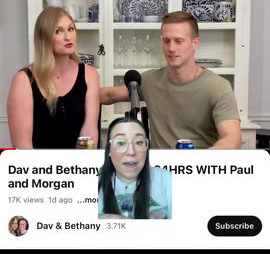Mainline and evangelical churches aren’t the only religious communities losing members these days. According to a new study published in the Journal of Religion and Demography, Mormonism is no longer followed by the majority of residents in Utah.
Ryan Cragun, a professor of sociology at the University of Tampa, says the Church of Jesus Christ of Latter-day Saints kept 95% of its children in the church in the 1980s, compared to approximately 67% today.
“Almost a third of people who are raised LDS today leave the religion,” he explained. “That’s our current best estimate.”
As a result of this exodus, Mormon leaders have responded in very similar ways to evangelical leaders.
For example, Brad Wilcox, a professor of ancient Scripture at Brigham Young University and a counselor in the Young Men general presidency in the Mormon Church, relayed one anecdote in a podcast interview about a young man who explained to him why he left Mormonism. “He says, ‘Oh because it seemed popular on TikTok. It seemed popular on social media. So I just kind of joined the crowd and left the church and made a big deal about it on social media.”
 Wilcox’s story sounds eerily similar to The Gospel Coalition claiming: “A wave of #exvangelical podcasters and TikTok stars are following in the wake, with a whole cottage industry to welcome and cheer them on. … Many of us feel the social pressure — and the release valve is a simple Instagram post away.”
Wilcox’s story sounds eerily similar to The Gospel Coalition claiming: “A wave of #exvangelical podcasters and TikTok stars are following in the wake, with a whole cottage industry to welcome and cheer them on. … Many of us feel the social pressure — and the release valve is a simple Instagram post away.”
Social media can be a difficult space for family, friends and complete strangers to navigate during faith transitions, especially when some of the parties involved are desperately concerned for the eternal souls of those who are deconstructing. And in many cases, these online debates drive us apart.
But despite social media drawing the ire of Mormon and evangelical leaders alike, a recent conversation has been stirring among evangelical, ex-evangelical and ex-Mormon YouTube channels that is provoking curiosity for how these seemingly irreconcilable communities may have more in common than they realize.
Girl Defined
Kristen Clark and Bethany Beal are two sisters from Texas who started Girl Defined Ministries in 2014 “to help modern girls understand and live out God’s timeless truth for womanhood.” Their courses and books focus on themes related to complementarian gender roles and sexual purity.
 Their YouTube channel features videos about modesty, masturbation, drag queens, feminism, LGBTQ people, seductive selfies, submitting to your husband, dress standards, and whether or not they are the most hated YouTubers.
Their YouTube channel features videos about modesty, masturbation, drag queens, feminism, LGBTQ people, seductive selfies, submitting to your husband, dress standards, and whether or not they are the most hated YouTubers.
Opposition to Girl Defined over the years has been so strong that other channels have amassed tens of millions of views on videos making fun of or criticizing Kristen and Bethany’s content.
Irrepressible thoughts of death to Christian patriarchy
While many of Girl Defined’s videos may feel like scenes from Complementarian Barbie’s dream house, some inconsistencies have begun creeping into their videos over the past year, leading some to speculate whether one of Girl Defined’s patriarchs was having an existential crisis with irrepressible thoughts of death to Christian patriarchy.
Seven months ago, Bethany and her husband, Dav, released a review of the Barbie movie where Bethany came out guns blazing to accuse Barbie of man-bashing and promoting feminism. Calling it a “snooze fest,” “such a lie” and a promoter of “wokeness,” Bethany rated Barbie a “super generous zero minus.”

Dav and Bethany Beal
But her husband had a very different take. As he talked about how Barbie flipped the script on patriarchal power dynamics to explore the existential crises that come from self-development in pursuit of what it means to be human, Bethany kept rolling her eyes. Then Dav noted how according to certain forms of feminism, “If you’re not awakened to the reality that there is systemic sexism in the society, then you’re basically living in false consciousness. You’re brainwashed by the patriarchy.”
Despite their differences, Bethany and Dav cared for one another as a couple enough to engage on social media while working to maintain a healthy relationship. And the ex-Mormon community began to wonder, “Is Dav deconstructing?”
When the oppressor is waking up
Zelph on the Shelf is a YouTube channel hosted by the hilarious and insightful Samantha Shelley and Tanner Gilliland, two best friends who discuss deconstructing Mormonism.
They posted a reaction to Bethany and Dav’s Barbie review, noting how Dav “has major deconstruction vibes” and joking, “See you on our channel in nine months, Dav.”
Samantha observed Bethany’s defense of the patriarchy: “The reason women have been trained … to be such ardent promoters of the patriarchy … usually it’s to please their husband. But she doesn’t get that from him. So that just makes such an interesting relationship dynamic to observe when the oppressor is the one waking up.”
She added, “Imagine waking up as a slaveowner to how wrong it was and then your slaves who had been born into it were like, ‘No, this is great. We want to keep doing this.’”

24 hours with Paul and Morgan
Anyone who has spent time on social media knows online conversations can get pretty heated. So Paul and Morgan Olliges have started a new series on their YouTube channel where they spend 24 hours with other Christians while discussing their differences.
“The division between Christians online is immense,” they explain. “In this series, we will press into tough conversations, disagree with love, and humanize the person behind the screen.”
For one of their videos, they decided to spend 24 hours with Bethany and Dav. And the differences between Bethany and Dav quickly become front and center. Much of the controversy in the video is about Paul and Morgan’s surprise when Dav uses an occasional curse word.
“You, from talking to you briefly, would be the type of Christian that I would push back on,” Paul observes with Dav from the passenger seat. “We started hanging out and I was like, ‘Hey, Dav, the cussing man. Like, why are you cussing?’ And I would quote a Bible verse like, ‘Let no unwholesome talk come out of your mouth.’”
 Then as Dav breaks the tension with laughter and a cuss word, Paul responds in surprised laughter with, “Did he just cuss at me? Oh! Wow!”
Then as Dav breaks the tension with laughter and a cuss word, Paul responds in surprised laughter with, “Did he just cuss at me? Oh! Wow!”
For many Christians, much of the episode may come across like a comedy sketch with Paul and Morgan being overly surprised to non-issues. But for many other Christians, Paul and Morgan are the perfect example of speaking the truth in love.
Perhaps the most interesting part of the episode is an extended conversation over the dinner table. Discussing their common interest in content creation, they talk about the hateful messages they receive, complaints about their marriages, or how Bethany feels when Dav agrees with the people who are arguing against her online, despite his natural desire to stand up for his wife.
“It is conceivable that the haters are willing to tell you things about yourself that nobody else is willing to tell you unless you have the type of people in your life that will call you out,” Dav reminds them. And as their differences deepen, he adds: “I wish that y’all would more befriend people rather than choosing to view them as the other, the bad ones, or whatever. I do think there is a road to that. But I think that you have decided to play that Us vs. Them game. I’ve started down the path of befriending … .”
A beautiful example of humanizing the other
As Zelph on the Shelf watched Paul and Morgan’s conversation with Bethany and Dav, they felt a common bond despite coming out of an entirely different religious background.
“This video humanized all four of them,” Tanner admitted, with Tanner and Samantha noting how Bethany and Dav had a more open-hearted energy between them that wasn’t as present in their Barbie review.
“The same physiological mechanisms that are occurring in the Mormon psyche … are the same ones that are playing out in the evangelical psyche, in the Muslim psyche.”
“Leaving Mormonism or unlearning this stuff, it’s not as different as they think, even though in their minds it’s like, ‘Mormonism is like a whole other thing.’ But they’re actually psychologically like the same thing, just a different story,” Tanner suggested. “The same physiological mechanisms that are occurring in the Mormon psyche … are the same ones that are playing out in the evangelical psyche, in the Muslim psyche. … It’s all the same neural circuitry and social conditioning.”
For Samantha, watching their videos was an exercise of seeing herself in the other. “We find Dav so endearing and interesting because we see ourselves in him,” she said.
Despite their differences with Dav, Paul and Morgan agreed. “It would be challenging for us if one of us held some of the types of views that Dav had,” Paul admitted.
But Morgan added, “I’m so, so thankful that Bethany and Dav have a strong marriage. I do not question whether their marriage is struggling or not. It’s not. They are solid. And I think that’s really something beautiful and amazing because if it were my marriage, it wouldn’t be like that.”
Even Bethany admitted her marriage has gotten stronger since Dav began deconstructing.
Paul observed: “They were more real than most of our friends. … These people see things differently and they’re talking about it.”
And regarding the ultimate “other” for religious conservatives, Paul noted, “This has opened up conversations with atheists and people we would not necessarily be talking to as much.”
The path from befriending to deconversion
In the weeks before and during their 24 hours with Paul and Morgan, Dav was experiencing his existential crisis. So he and Bethany sat down at their dining room table to share what they were processing together.
“Something broke over that week and I just didn’t feel tied down any more to basically anything that would keep me from fully questioning my beliefs and my faith,” Dav admitted. “And I even found myself wanting Christianity to not be true just because of my own personal experiences with trying to have it be real in my life.
“So I got to this point where it’s like I hope this isn’t true because I don’t want to go through life always having to think I’m the worst in order to find the life in Christ.” Reflecting on the conservative evangelical theology he was leaving, he said, “It sort of requires you to feel really bad or to at least admit, ‘Oh you’re just sort of nothing and you have nothing, and so that’s why you need Jesus and isn’t that such great news?’ It’s like it just stopped being good news for me.”
A cause for celebration or mourning?
“It’s beautiful,” Paul reflected with Morgan as they considered how Bethany and Dav were loving one another in their video about Dav’s changing theology. “It was in some respects a beautiful video.”

Paul and Morgan Olliges
Of course, as ex-Mormons, Zelph on the Shelf had been celebrating Dav’s journey the entire time. Samantha said, “It is notoriously difficult to break free from that kind of high control thinking.”
So as Dav was progressing through his stages of deconstruction, Samantha suggested, “We should be able to celebrate wins along the way. … We can’t not celebrate progress until someone is at this imagined final version that we think everyone should be as a baseline before they’re worthy of love and respect.”
But while Paul and Morgan were genuinely inspired by Bethany and Dav’s love for one another, they couldn’t join Tanner and Samantha in celebrating Dav’s deconversion.
“That’s gut wrenching for me to see,” Paul said. “It was gut wrenching for me to see someone, as a believer that’s after the Lord and is living in light of eternity that one day we’re all going to die and face judgment, I’m believing what the Bible says. To see someone who’s now … abandoned the faith is not something that I’m going to hop in the comment section and be happy about.”
Despite Dav’s deconversion, Paul continues to hope. “If Dav is seeking with all his heart, I’m hoping that he comes back to what I believe so confidently to be the truth, which is Jesus Christ being the way, the truth, the life, and no one comes to the Father except through him.”
Experiencing relational and ideological exile
As the conversation stands, Paul and Morgan are fully committed conservative evangelicals, while Bethany and Dav have become a mixed-faith marriage, and Tanner and Samantha are ex-Mormons.
It’s a situation many readers of Baptist News Global may find ourselves in since many of us have family and friends across the religious to non-religious spectrum. What can we learn about our own relationships by watching theirs play out on social media?
It is highly unlikely that the six of them will unite by submitting themselves to Mormon or evangelical theology and churches. Perhaps rather than theorizing about how they might possibly find union by submitting to the same religious hierarchies that are panicking over them talking on social media, our time could be better spent observing where they are currently bonding with one another.
Restorative justice through an apocalypse of love
While Paul, Morgan and Bethany have fundamentally different theology than Tanner, Samantha and Dav, all of them are finding beauty in their common experiences and love for one another.
“I again am just so impressed by Bethany’s willingness to hold this space for this conversation,” Tanner says. “I think this is the most open, authentic conversation about mixed-faith relationships and deconstruction I’ve ever seen. So as much as she gets branded as this hateful fundamentalist Christian extremist, the fact that she can just sit here and listen and lovingly hold that space and be like, ‘My faith is my faith, and I love you, and I support you,’ letting him just be honest about his experience, that is a spiritual gift that not a lot of people, regardless of your affinity group, have. … This conversation could have LDS families in like scream battles of, ‘How dare you, Satanic person!’”
And that’s precisely where the exile lies. Mormonism and conservative evangelicalism both contend that unless someone submits to their ideology, they will be exiled from those who love them when they die. As a result, their apocalypse of exile creates a presence of exile today.
“If we believe in an apocalypse of love, then we will invest ourselves into that apocalypse by planting seeds of love today.”
But if we believe in an apocalypse of love, then we will invest ourselves into that apocalypse by planting seeds of love today. And if we believe this is all there is and that no particular apocalypse is guaranteed, then the apocalypse that will grow is the result of what we’re planting today.
So what seeds are we planting today?
Beautiful union
In other words, the beautiful union we long for is the beautiful union we’re experiencing through Bethany and Dav’s love for one another in their mixed-faith marriage.
That has to have consequences for all hierarchical theologies of apocalypse that fuel exile. And that’s exactly why the men in charge in the Mormon Church and in conservative evangelicalism feel so threatened by social media. Our deconstruction is inviting people out of their towers of sacralized hierarchy.
But rather than listening to their gaslighting from the top rooms of their towers, perhaps we should listen to these words from Bethany.
“People … that we sought counsel from have been so encouraging and supportive of how we’ve been able to press toward each other and love each other and have these conversations and not run away from each other in fear or separate. But we’ve been able to grow. And even though it’s hard, this big difference of ours now, I think we love each other more now than we did three weeks ago, a year ago, when we got married obviously. … I want to be with you.”

Rick Pidcock
Rick Pidcock is a 2004 graduate of Bob Jones University, with a bachelor of arts degree in Bible. He’s a freelance writer based in South Carolina and a former Clemons Fellow with BNG. He completed a master of arts degree in worship from Northern Seminary. He is a stay-at-home father of five children and produces music under the artist name Provoke Wonder. Follow his blog at www.rickpidcock.com.


